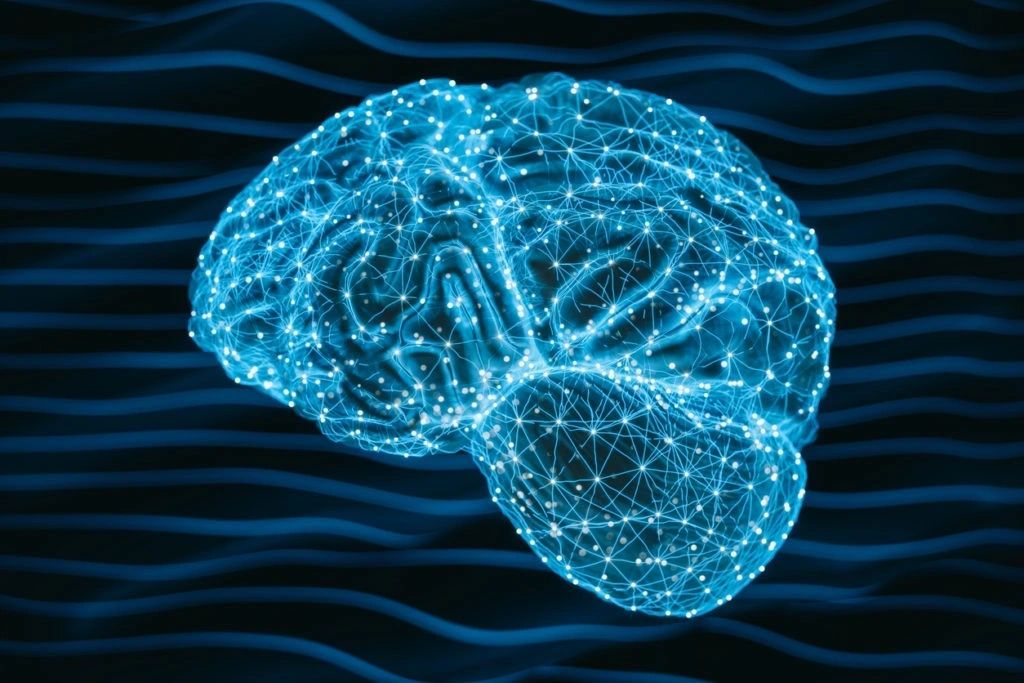We will explore the effects of NAD on Anxiety and Depression.
NAD is a coenzyme which has been shown to be highly effective in elevating mood and reversing feelings of depression and anxiety. In addition, NAD has also been shown to replenish the neurotransmitters which have been depleted because of the constant state of activation of the nervous system and body.
The Emerging Role of NAD in Combatting Anxiety and Depression
In recent years, the quest for better mental health treatments has taken an intriguing turn towards understanding the molecular and cellular mechanisms underpinning anxiety and depression. Among the various molecules under investigation, Nicotinamide Adenine Dinucleotide (NAD+) has garnered significant attention. This coenzyme, pivotal in cellular metabolism, shows promise in mitigating the symptoms of these debilitating mental health conditions.
Understanding NAD+
NAD+ is a crucial coenzyme found in all living cells, playing a key role in energy metabolism and maintaining cellular health. It facilitates redox reactions, transferring electrons from one molecule to another, which is essential for ATP production. Besides its metabolic functions, NAD+ is vital for DNA repair, gene expression regulation, and cell signaling.
NAD+ and Brain Health
The brain is one of the most metabolically active organs, demanding a constant supply of energy. NAD+ levels influence mitochondrial function, which is critical for energy production in neurons. Healthy mitochondrial function is linked to better cognitive function and emotional regulation. Thus, NAD+ depletion, often seen in aging and stress, can impair brain function and contribute to mental health disorders.
NAD+ and Neurotransmitter Regulation
Neurotransmitters such as serotonin, dopamine, and norepinephrine are crucial for mood regulation. Imbalances in these chemicals are commonly associated with anxiety and depression. NAD+ influences the production and breakdown of these neurotransmitters. For instance, it acts as a cofactor for enzymes involved in the synthesis of serotonin, which is often termed the ‘feel-good’ neurotransmitter. Adequate levels of NAD+ ensure proper functioning of these enzymes, potentially stabilizing mood and reducing symptoms of depression.
NAD+ and Inflammation
Chronic inflammation has been implicated in the pathophysiology of anxiety and depression. NAD+ exerts anti-inflammatory effects by modulating the activity of sirtuins, a family of proteins involved in cellular stress responses. By activating sirtuins, NAD+ can help reduce inflammation, potentially alleviating symptoms of anxiety and depression.
Clinical Evidence and Therapeutic Potential
While the theoretical underpinnings are compelling, what does the clinical evidence say? Preliminary studies and clinical trials suggest that NAD+ supplementation can improve symptoms of depression and anxiety. For instance, NAD+ therapy has been used to alleviate withdrawal symptoms in addiction recovery, often linked with anxiety and depression.
Moreover, NAD+ boosters like nicotinamide riboside (NR) and nicotinamide mononucleotide (NMN) are being studied for their potential mental health benefits. Early research indicates that these supplements can cross the blood-brain barrier, increase NAD+ levels in the brain, and improve mood and cognitive function.
Practical Considerations
While NAD+ supplementation shows promise, it is essential to approach this emerging treatment with caution. Consulting with healthcare professionals before starting any new supplement regimen is crucial. More extensive clinical trials are needed to fully understand the long-term effects and optimal dosing strategies of NAD+ supplementation.
Conclusion
The exploration of NAD+ as a potential treatment for anxiety and depression is a promising frontier in mental health research. By supporting cellular energy production, neurotransmitter regulation, and reducing inflammation, NAD+ holds potential as a novel approach to managing these conditions. As research progresses, NAD+ supplementation could become a valuable tool in the comprehensive treatment of anxiety and depression, offering hope to millions affected by these disorders.
By delving into the molecular mechanisms and clinical evidence, we can appreciate the potential NAD+ holds in transforming mental health treatment. As always, further research will illuminate the path forward, but the current findings offer a beacon of hope for improved mental health and well-being.
For more information, check out this site which contains more information on NAD+.



